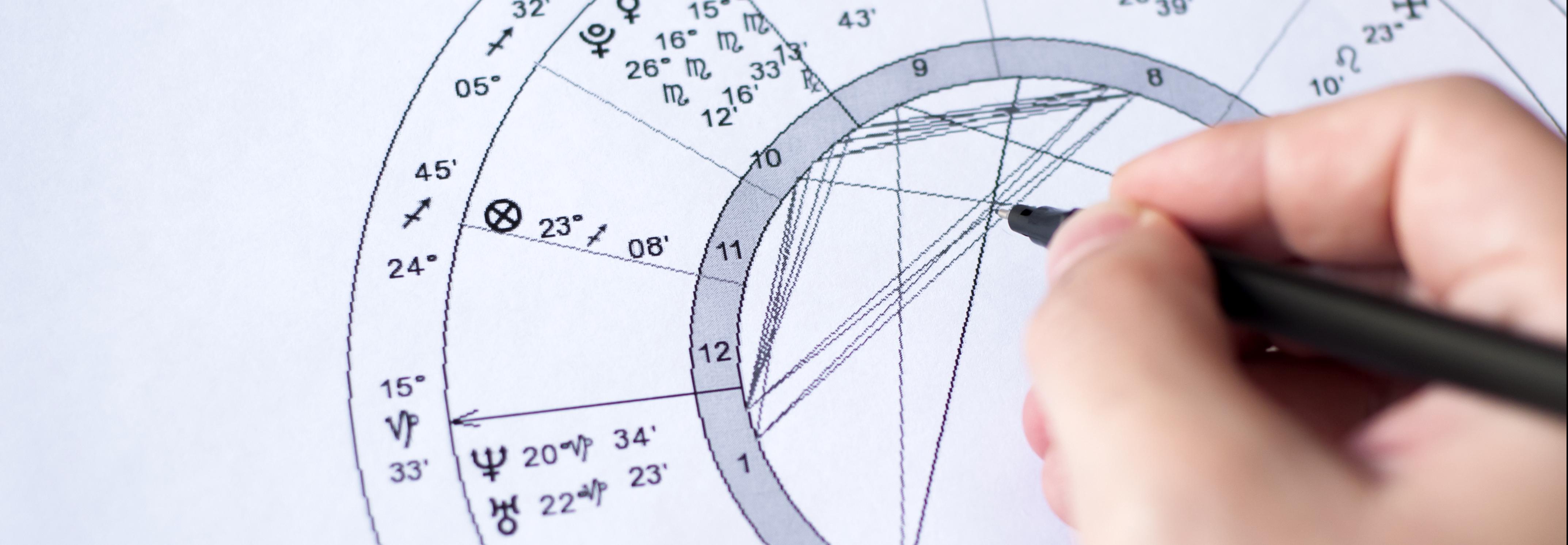
I am afraid I have a terrible confession to make. One that I have never shared with anyone else before, but which I now feel I can tell you about as I think I have finally worked out why I do it.
The truth is, despite being a scientist by training, despite priding myself on my logic and deductive reasoning… I love reading my horoscope.
Not the day-to-day kind – who has time for that? - but the monthly or yearly ones that abound at this time of year. I love reading them, but at the same time used to be furious at myself for acting against everything I believed in. There is of course absolutely no reason why the position of a planet should mean a financial windfall or news from a secret admirer. None. And yet…
This week, however, I had a revelation, realising it wasn’t actually the content of the horoscope that was important, it was making the time to think about what the coming year might hold, and what I would like to happen. The reason I enjoy reading them is that they make me set aside the time to do just that. Essentially, I am just thinking about the future, being mindful of my responses to what I read, see, and hear. What jumps out and what I have a response to is where the real value lies, not in the content itself.
It’s a bit like those ‘away days’ (chance would be a fine thing), which I used to dread. My to do list never seems longer than the night before we set off and I would never suggest the need for one, but I always enjoy them, because they make me think about the future, about where the business needs to go, and what I need to do to support that journey. It was on just such an away day that our ideas led to Lantra’s new change in direction and a review of how we operate online, which we will launch later in the year.
So why do I need to be forced, or ‘conned’ into thinking about the future? A (small) study says that people are more likely to read their horoscope at times of stress, which is why Generation X and Z (almost half of whom reported feeling stressed or anxious most or all of the time[1]) are so interested in horoscopes and now reading them much more.
For myself, I think when you are someone who loves ‘getting things done’, you get a buzz when you score things off the ‘to-do’ list. Naturally, it becomes what we focus on. But now, more than ever, we all need to start thinking about what the future might hold. It’s not easy, particularly when we don’t know what’s going to happen with the virus next week, let alone next year, but we do know that at some point, the restrictions will end.
What we really don’t know, is what will come after.
What will the economic impact be? What will happen in terms of employment? Other changes, such as Brexit, are still to work through, and then of course there are the ‘unknown unknowns’… where to start? No surprise that I might naturally focus on my to do list…
I am certainly not suggesting that away days or astrology hold the answers to the challenges we face, but what they might do is help us identify how we feel about the potential outcomes, which in turn can help us make more informed decisions.
During the pandemic, many of us changed how we live and work. In some cases for the better – either for ourselves or for the environment, in others for the worse, perhaps in terms of social connections or development work. Now, more than ever, we need to think about what we want the future to be like.
Why not put the list to one side and create some space to think about it? In our last newsletter we shared information on the CivTech Demo Week and I highly recommend you register for it, as you can get a glimpse into future solutions for a range of technical challenges faced by Scottish organisations. I attended last year, and this year I am a participant. The agenda has just been published for all 3 days
Although your to do list might never have looked so long, why not take the time to have a think about what the future might hold? Ideally, before Mercury goes retrograde...
[1] https://www2.deloitte.com/content/dam/Deloitte/global/Documents/About-Deloitte/gx-millennial-survey-mental-health-whitepaper.pdf